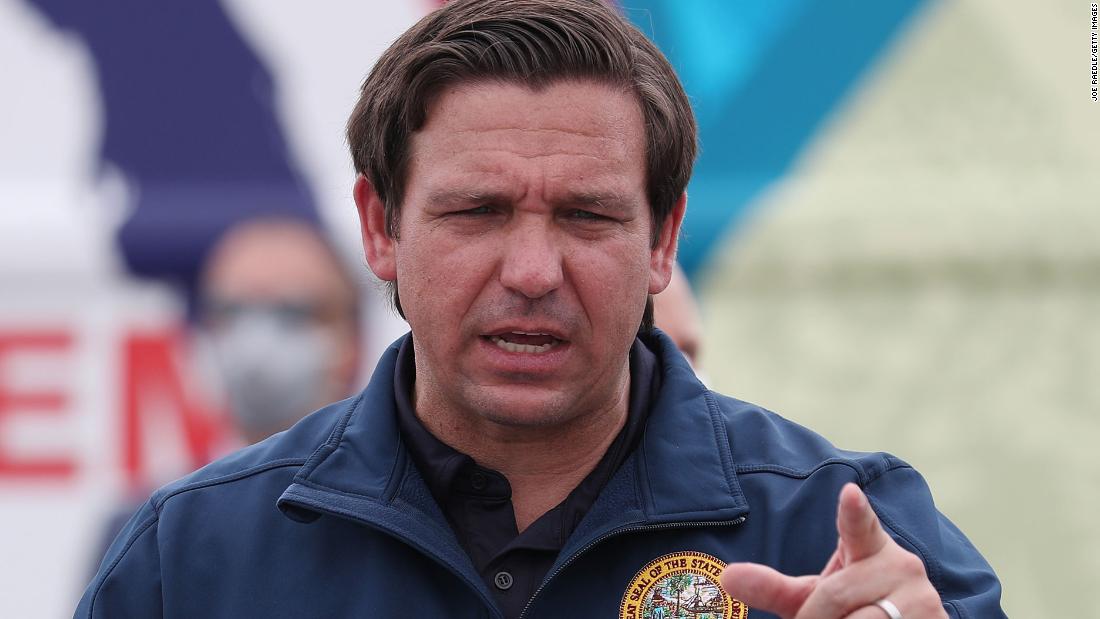Florida Governor Ron DeSantis finds himself at a critical juncture in his bid for the White House as he continues to grapple with declining poll numbers and a series of campaign shake-ups. With repeated attempts to reboot his struggling campaign, DeSantis is making strategic changes in his team in a bid to reinvigorate his prospects and connect with Republican primary voters.
The latest development in this tumultuous journey involves a significant personnel adjustment. Generra Peck, who previously held the position of campaign manager, has been replaced by James Uthmeier, the governor’s chief of staff. This decision, although surprising to some due to Uthmeier’s limited campaign experience, underscores DeSantis’s priority of personal loyalty and trust. At the same time, another key player, David Polyansky, is making a shift from the Never Back Down super PAC, where he was instrumental in shaping early-state strategy, to join the campaign itself.
These changes mark the third round of campaign staffing adjustments in less than a month. Each move is a calculated effort by DeSantis to regain his footing and connect more effectively with Republican primary voters who have thus far been eluding him. The timing of these shifts is notable, coming on the heels of a recent New York Times/Siena College poll that highlighted the popularity of former President Donald J. Trump as a candidate against President Biden. The poll’s results indicate that Trump is perceived as a stronger contender and as someone more likely to deliver on campaign promises, posing a challenge to DeSantis’s image as a practical and electable Republican candidate.
One central figure in this narrative is Generra Peck, who, despite her role as chief strategist, drew significant criticism for her handling of campaign finances. The heavy spending under her leadership led to a fundraising shortfall, prompting a round of layoffs and the restructuring of campaign events to align with a leaner operation. These changes aimed to adapt the campaign to the reality of DeSantis trailing behind Trump in the race.
Peck’s previous success in managing DeSantis’s re-election campaign as governor did not translate seamlessly into the realm of presidential campaigns. Her lack of experience in this arena became evident, and the decision to replace her as campaign manager with Uthmeier reflects DeSantis’s desire to infuse fresh energy and strategic direction into his efforts. Uthmeier, although lacking direct campaign experience, has been a trusted confidant of the governor and embodies the qualities of personal loyalty and dedication that DeSantis values.
Another pivotal figure, David Polyansky, adds an intriguing dynamic to the narrative. Having been a key player in the Never Back Down super PAC’s early-state strategy, Polyansky’s transition to the campaign itself is a noteworthy move. His expertise in Iowa politics is particularly significant, given the state’s importance in shaping the trajectory of the campaign. Polyansky’s integration into the campaign brings the insights and strategies of the super PAC directly to the forefront of DeSantis’s bid for the presidency.
The interaction between the campaign and the super PAC introduces a layer of complexity. While campaign strategists can join the super PAC, the reverse is prohibited under current campaign finance rules. Polyansky’s dual involvement bridges this gap, enabling the campaign to benefit from the super PAC’s strategic acumen in navigating critical early-state contests.
Despite the uncertainties and ongoing shifts, DeSantis remains resolute in his determination to prove himself as a viable and competitive candidate. He has weathered previous challenges and is intent on demonstrating his ability to emerge victorious. The changes in campaign leadership and strategy signal a recognition of the need for adaptation and evolution in the face of changing circumstances.
In a recent statement, Uthmeier emphasized DeSantis’s resilience and track record of success, noting that the governor has defied doubters on multiple occasions. Uthmeier’s assertion that DeSantis “knows how to win” underscores the campaign’s unwavering belief in its ability to overcome challenges and secure a position of strength in the primary race.
As DeSantis navigates the complex terrain of presidential campaigning, his choices in personnel and strategy will play a pivotal role in determining his trajectory. The ongoing efforts to reboot his campaign underscore his commitment to addressing the issues that have hindered his progress and reshaping his approach to resonate more effectively with Republican voters. Time will tell whether these calculated moves will yield the desired results and position DeSantis as a frontrunner in the race for the White House.





